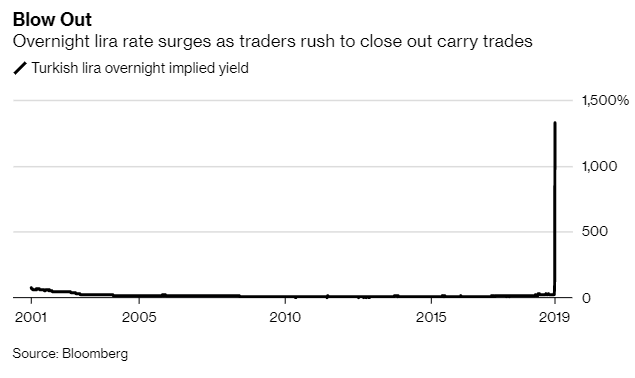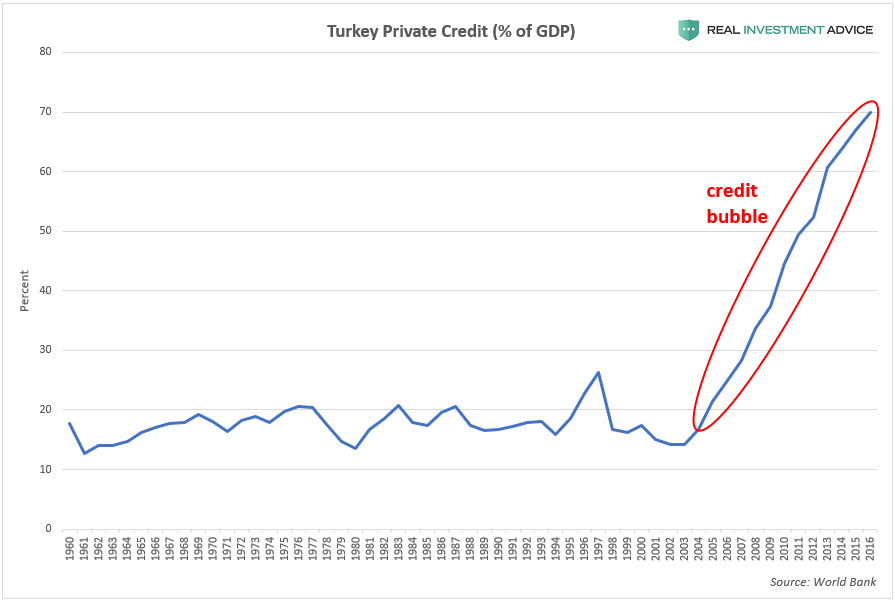Turkey’s economic and financial situation is unraveling fast:
As a recession settles in over Turkey following a currency crash last summer and a selloff in local markets, the stakes are getting higher. Turkey relied on foreign capital to finance its credit-fueled growth in 2016-2017, a period when portfolio inflows averaged $1.3 billion a month and the current account sank deeper into deficit. Investors fled Turkish assets last year, and outflows continued for eight months straight before stabilizing.
This week, Turkey further roiled markets by preventing foreign banks from accessing the liras they need to close out their swap positions. That’s made it almost impossible for bankers to short the lira or exit carry trades, and forced the overnight lira rate up to about 1,000 percent from 23 percent.

Some foreign banks were unable to meet their obligations at the close of trading on Tuesday, forcing the central bank to extend hours for transferring funds in Turkey to 9 p.m., according to a senior Turkish official, who spoke on condition of anonymity. On Wednesday, the Turkish stock and bond markets took the brunt of the hit from the measures meant to protect the lira: banking stocks were down more than 7 percent and the yield on 10-year lira bonds rose 74 basis points to 18.23 percent.
Turkey’s shocking intervention this week – which sought to punish speculators who were betting against the lira – is more confirmation that the country’s financial and economic situation is spiraling out of control. The primary reason for this turmoil is the bursting of Turkey’s 15 year old credit bubble (see my warning about this). To summarize, a credit bubble formed in Turkey starting in the early-2000s, which led to an artificial economic boom.
Private sector credit grew from roughly 15% of GDP in 2003 to 70% of GDP in 2016. Surging interest rates are now bursting the credit bubble and putting an end to the artificial economic boom.

Unfortunately, Turkey’s situation is only going to get worse—a 15 year-old credit bubble doesn’t resolve in a mere six months. This week’s currency intervention will only serve to scare away foreign investors, which will contribute to the downward spiral.
Turkey is just one of many emerging economies that have experienced credit bubbles in the past decade due to the stimulative actions of global central banks. Bubbles – including the one in Turkey – have caused global debt to explode by $150 trillion in 15 years and $70 trillion in 10 years. Even if you do not invest directly in Turkey, you are still likely exposed to contagion risk. Welcome to the downside of globalization.
